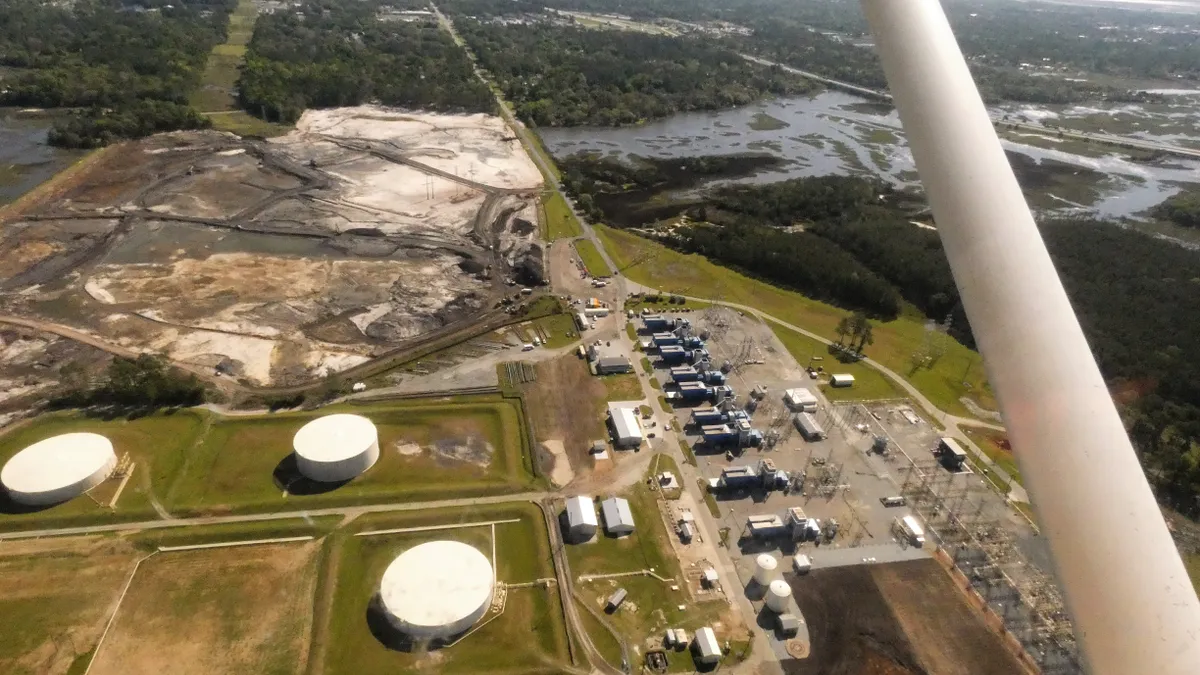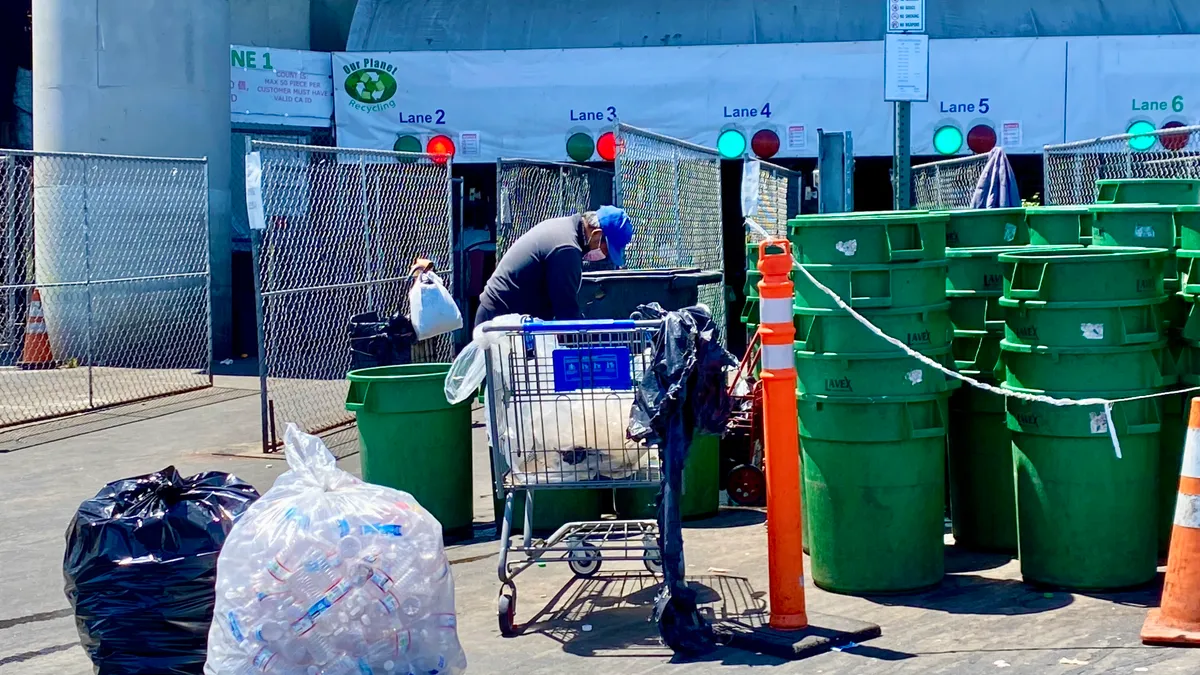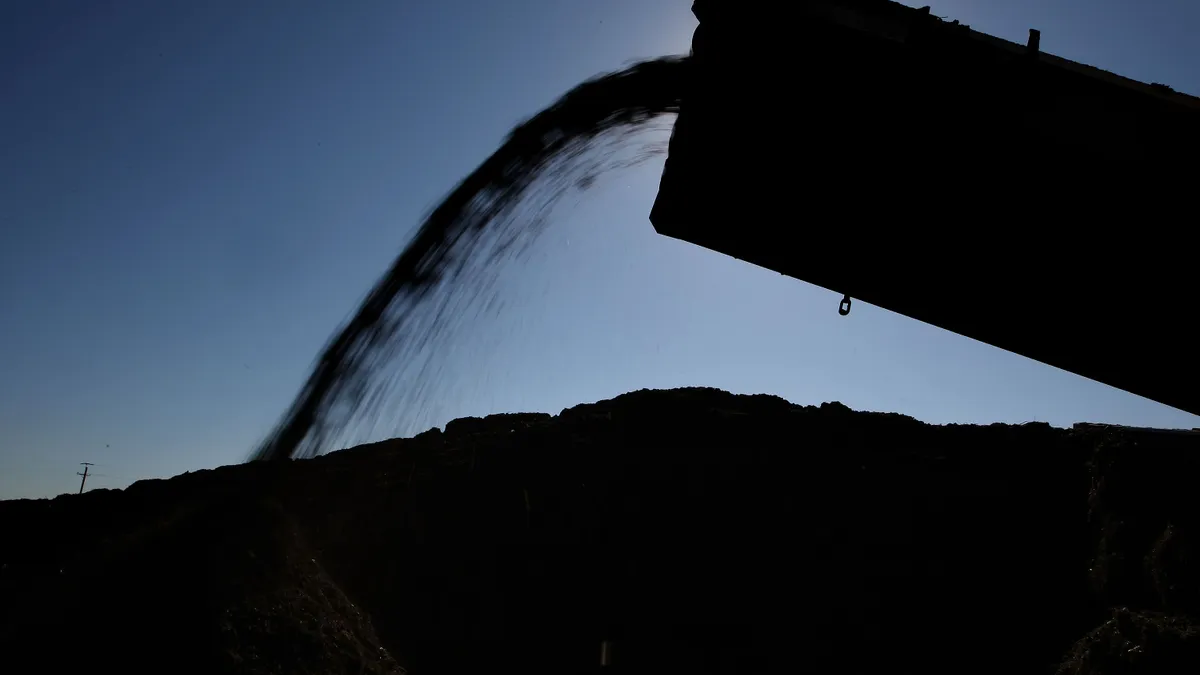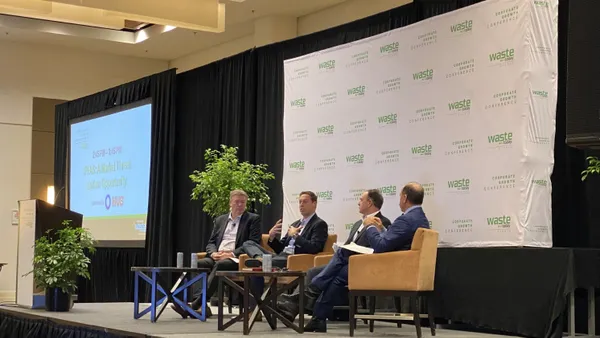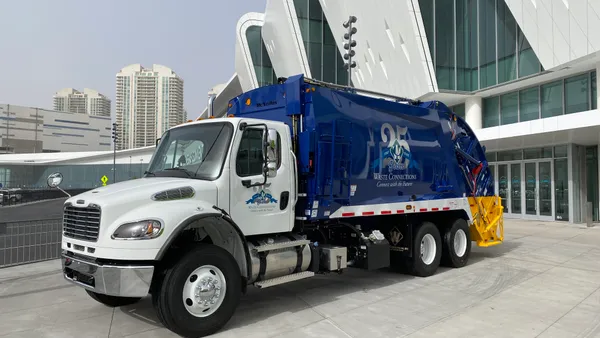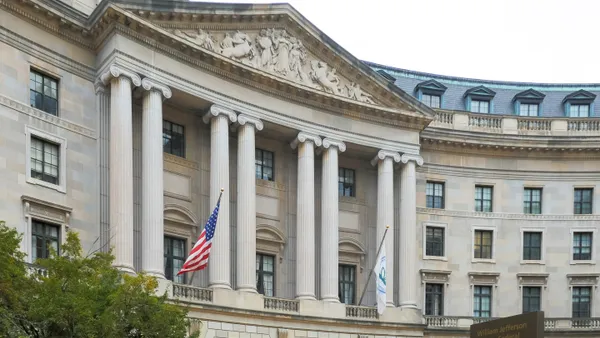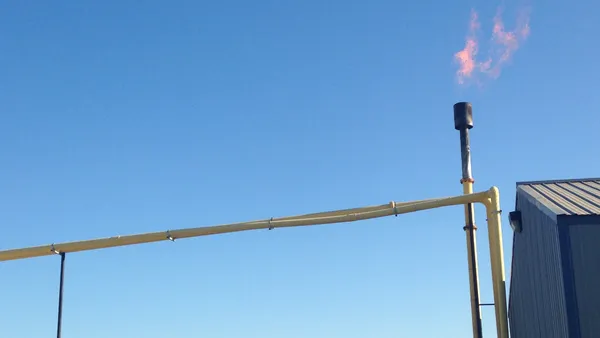Dive Brief:
- Coal ash would be treated like solid waste under a new bill in the Georgia legislature introduced this week. The bill — H.B. 756 — would require disposal of coal ash or coal combustion residuals (CCR), to be at least as stringent as MSW, the Atlanta Journal-Constitution reported.
- Under Georgia law, MSW is currently disposed in landfills with both bottom liners and collection systems for leachate. Coal ash, however, is subject to more lax regulations and no liner is required for storage of the toxic waste, which can include arsenic, mercury and lead. CCR can cause cancer, along with damage to the brain, lungs, kidneys and other parts of the body.
- Fletcher Sams, executive director with the Altamaha Riverkeeper, told Waste Dive the bill would help to protect drinking water for residents near coal ash storage areas reliant on wells. "We just want it [the coal ash] put into a lined area with a leachate collection system," he said.
Dive Insight:
Coal ash cleanup efforts are advancing in a number of states, amid growing concern over health and environmental hazards. North Carolina has notably ordered Duke Energy to excavate around 72.5 million metric tons of CCR at six facilities. Virginia has also mandated cleanup efforts and Dominion Power is working to excavate roughly 30 million metric tons of its own coal waste in that state.
In Georgia, efforts are moving at a slightly different pace. A 2018 report from the Environmental Integrity Project and Earthjustice found contaminated groundwater near 11 of 12 coal-fired power plants, leading to calls for cleanup by local communities and health organizations. But in December, Georgia became the second state allowed by the U.S. EPA to operate its own coal ash permitting program. Proponents argue that move gives Georgia more leeway in how the state cleans up the toxic waste, while critics worry it could lead to insufficient excavation.
Some of Georgia Power's current plans for closing its ash sites include leaving CCR in unlined ponds, to the consternation of state Democrats. H.B. 756 takes aim at those unlined ponds, requiring Georgia Power to install liners. The state would deny permits to any landfill accepting CCR that lacks a liner and a leachate control system.
Those stricter requirements could benefit the waste industry, as landfills already have these components in place. Players in the space have expressed interest in coal ash as a potential business opportunity. During Waste Management's 2019 Q2 earnings call, CEO Jim Fish indicated cleanup of CCR has been profitable and could continue to be. He pointed to the "700 active and inactive ash ponds in the United States" currently subject to state and federal CCR regulations.
"[Over the next] decade, those electric utilities are going to have to address somewhere in the neighborhood of 700 million tons [of waste]," he said at the time. "It's a big, big number."
Fish also compared the margins for coal ash cleanup to MSW, with the caveat that in some cases the returns can "actually be better" from a financial standpoint, citing one unnamed "big customer" from a prior year. According to a May 2019 investor presentation, the company has managed 33 million tons of CCR in the past decade. Senior Vice President Michael Watson described coal ash as a $50 billion addressable market, with $3.5 billion in the pipeline for Waste Management alone.
It is unclear how H.B. 756 might immediately impact the industry. "Waste Management landfills accepting coal ash are lined and meet the ash management plans as required by the state," said Janette Micelli, a spokesperson for Waste Management, in response to a request for comment from Waste Dive. The company did not elaborate on what the bill might mean for business opportunities.
Advanced Disposal, which also has multiple landfills in Georgia, declined to comment due to its pending acquisition by Waste Management.
Sams, of the Altamaha Riverkeeper, said he was not aware of any waste companies taking a major interest in the new bill. Still, he indicated its passage could be lucrative for the industry as well as a source of job creation. He also pointed to another bill in Georgia addressing CCR disposal issues. S.B. 123, in the state Senate, would raise tipping fees for CCR from $1.00 to $2.50, to match MSW fees.
"We're the magnet for out-of-state coal ash being imported [because of low fees]," he said.


